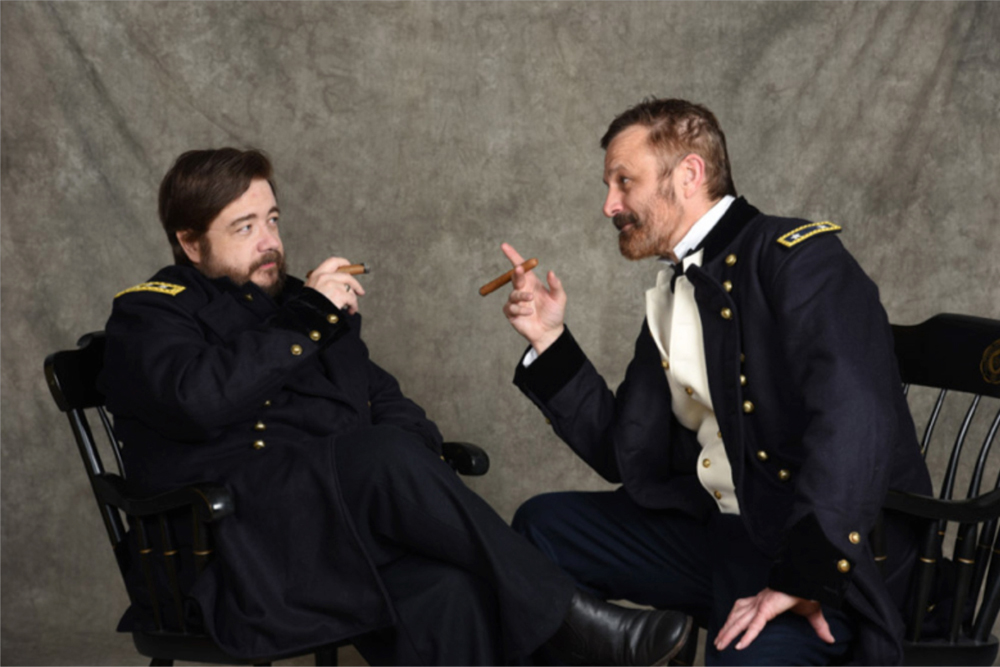Morgan-Manning House to host Civil War generals

The Western Monroe Historical Society will host Rudely Stamp’d on March 22, at 7 p.m., at the Morgan-Manning House for one show of their play “Now We Stand By Each Other Always.”
The play features a conversation between Union Civil War generals Ulysses S. Grant and William T. Sherman, which took place at City Point, Virginia, in March 1865 – near the end of the Civil War. The famous cigar-chomping pair consider how best to close out the war as Sherman regales his chief with his exploits in Georgia.
The event is free and open to the public at the Victorian mansion located at 151 Main Street in Brockport. Donations to the historical society are encouraged. For more information, visit https://rudelystampd.wordpress.com/ or call the Morgan-Manning House business office at 585-637-3645.
Derek Maxfield is an associate professor of history at Genesee Community College in Batavia where he is also coordinator of the college’s Historical Horizons Lecture Series. Tracy Ford is an associate professor of English at Genesee Community College.
In an email interview, Professor Maxfield was asked what “Rudely Stamp’d” is. “I guess we could be called a theatrical group, but we are not trained actors,” he said. “We are two veteran professors looking for new ways to teach. What we present in the play is an interpretation of an actual meeting of two Civil War generals in March 1865. We know much about that meeting from memoirs, letters and other accounts. It is quite historically accurate. In fact, about 75 percent of the lines are from those accounts; many are word for word.” And going from fact to artistry, he added, “Of course, what we don’t know, like good historians, we have to create based on our understanding of their personalities and the culture of the time.” He continued, “The name ‘Rudely Stamp’d’ is from Shakespeare’s Richard III. We thought the name was appropriate for distinguishing us – we are both rudely stamp’d.” (From other sources: The term refers to Richard’s hunchback appearance, interpreted as “deformed,” and “unfinished.”).
Note: Thanks to Rozenn Bailleul-LeSuer, WMHS historian for contributing – DH


